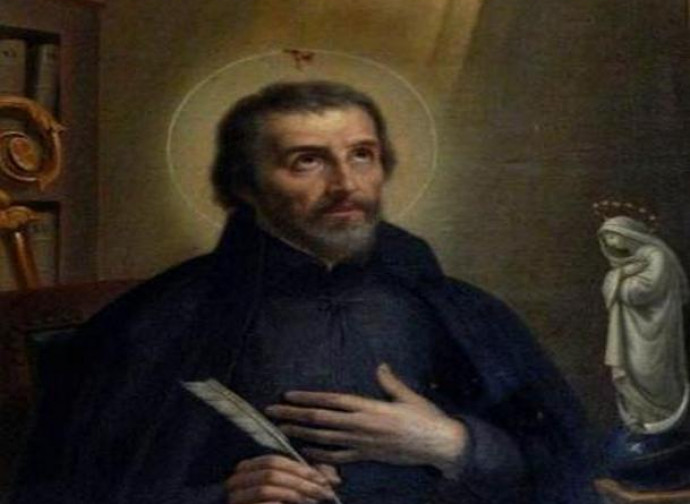Saint Peter Canisius
His Catechism – indeed, his three Catechisms – formed German Catholics for centuries: in Germany, as Pope Benedict XVI recalls, "even in my father's generation, people called the Catechism simply the Canisius".

Without St. Peter Canisius (1521-1597), the Catholic Reformation would have lacked a fundamental building block. Suffice to say that his Catechism – indeed, his three Catechisms – formed German Catholics for centuries: in Germany, as Pope Benedict XVI recalls, "even in my father's generation, people called the Catechism simply the Canisius".
Peter Canisius was the son of the Mayor of Nimeguen, a Dutch city then in the German part of the Holy Roman Empire. As a young student at the University of Cologne, he came into contact with the local Carthusians. Then he met Saint Pierre Favre, one of the founders of the Society of Jesus, who introduced Peter to the spiritual exercises of Saint Ignatius of Loyola. This encounter was decisive for his life, it led to Peter joining the Jesuits and becoming their first member in the German-speaking area.
Due to his theological competence, as early as 1547 the Bishop of Augsburg appointed Canisius as a counsellor at the Council of Trent. The following year, Saint Ignatius sent him to Italy to complete his spiritual and doctrinal formation first in Rome, then at the College of Messina and in Bologna, finally assigning him to the apostolate in Germany, centre of the propagation of Luther's heresy. Canisius went to Paul III and prayed in St. Peter's Basilica to ask for the intercession of the two apostles martyred in Rome: "There I felt that a great consolation and the presence of grace were granted to me through these intercessors [Peter and Paul]. They confirmed my mission in Germany and seemed to transmit to me, as the apostle of Germany, the support of their benevolence".
For several years the hub of his ministry was Bavaria, where he succeeded in strengthening the Catholic faith which still prevailed there, as he would later do in Vienna, Prague and Poland, while managing to keep Catholicism alive in the regions where Protestantism was rampant. He also attempted a reconciliation with Protestants, including Philip Melanchthon, by participating in the Diet of Worms (1557), but this hope vanished as he pointed out their internal differences on the doctrine of original sin and justification. In his work in defence of orthodoxy, Canisius always united firmness with charity (his Prayer to Keep the True Faith is beautiful) which flowed from his devotion to the Sacred Heart and from an intimate friendship with Jesus, who helped him distinguish between the self-conscious apostates, that is, those who had abandoned the Church out of pride, and those (the majority) who had become Protestant because of the circumstances: these he tried to help by expounding the foundations of the Christian faith.
His main legacy is represented by the three Catechisms he wrote between 1555 and 1558, where the Catholic doctrine is presented through a series of questions and answers. The first Catechism was addressed to students already familiar with the basics of theology, the second was for children without education, and the third for those with a school education. The three Catechisms soon became very widespread and only in the course of his life 200 editions were produced. Canisius also wrote commentaries on the Gospels, a treatise on the Blessed Virgin and edited the complete works of Saint Leo the Great and Saint Cyril of Alexandria. In light of his immense work for God, Leo XIII appointed him the second Apostle of Germany after St. Boniface, and Pius XI proclaimed him Doctor of the Church.
Further reading:
- Catechesis of Benedict XVI on St. Peter Canisius (general audience of February 9, 2011)
- Summa doctrinae christianae, Catechismus minimus, Parvus catechismus catholicorum, De Maria Virgine
